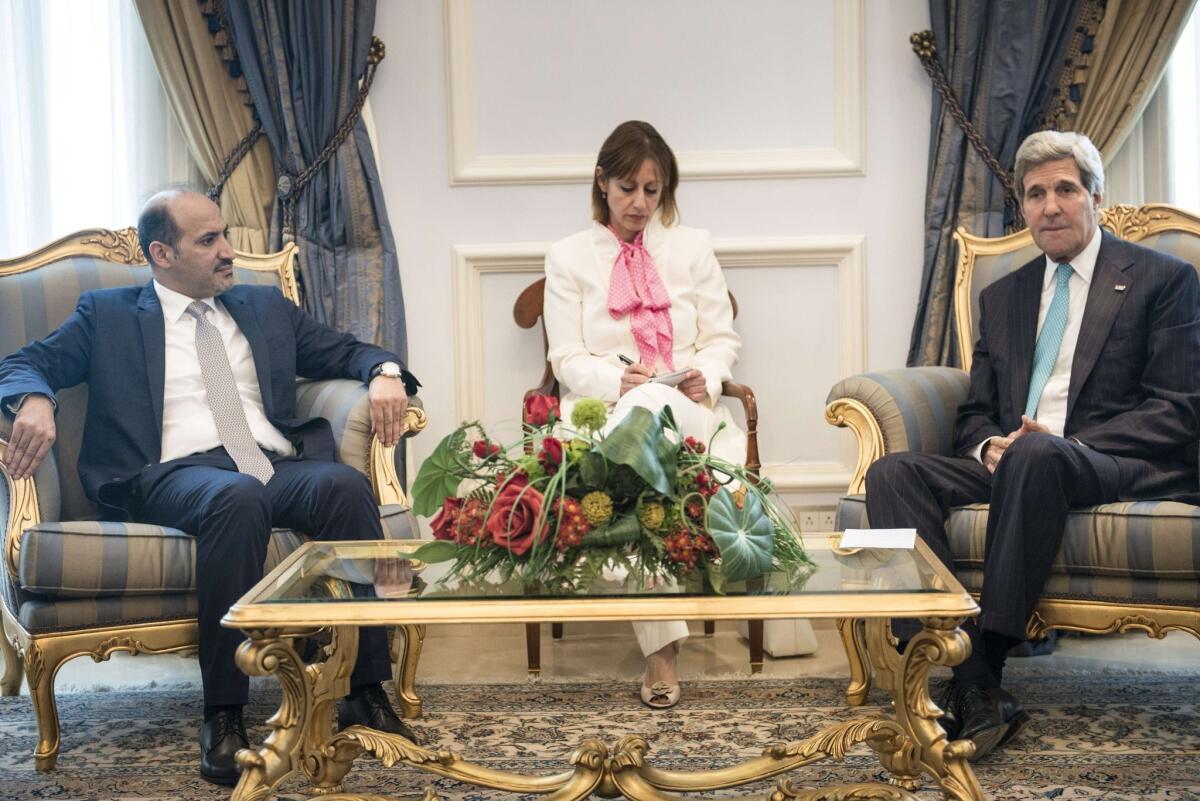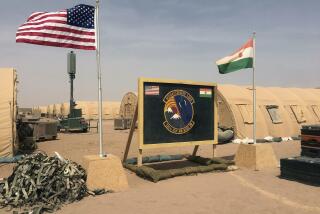U.S.-backed Syrian opposition force says no to leadership shake-up

The major U.S.-backed Syrian opposition coalition has voided its prime minister’s decision to disband the group’s military command structure and fire its top general.
The reversal reflects the deep divisions, clashing rivalries and considerable disarray within the Syrian National Coalition. The exile-based opposition group has been the recipient of tens of millions of dollars in aid from the United States and allies backing the armed rebellion against the government of Syrian President Bashar Assad.
A coalition delegation supported by Washington also formally represented the opposition at Syrian peace negotiations held in Geneva earlier this year. The talks ended without a plan for peace or a cease-fire.
In a statement late Friday on its Facebook page, the Syrian National Coalition said that Ahmad Tomeh, prime minister of the coalition’s opposition shadow government, did not have the legal authority to dissolve the coalition’s Supreme Military Council or to sack its top general. The coalition said that Tomeh acted “entirely outside the framework of the powers of the temporary government.”
A day earlier, Tomeh had announced the sweeping restructuring of the coalition’s military wing and referred the matter to a financial and administrative oversight committee for investigation. He also ousted the top general, but provided no details on any possible wrongdoing. Tomeh criticized the military leadership for spending too much time outside Syria.
Internal dissent and bitter infighting have long plagued the opposition coalition. Various outside powers, including Saudi Arabia and Qatar, back different factions within the group.
Many critics within the diverse Syrian opposition not affiliated with the coalition have assailed the group as having little relevance on the ground in Syria. Still, the U.S. continues to stand by the coalition as spearheading the “moderate” Syrian opposition.
On Friday, Secretary of State John F. Kerry met with the coalition’s president, Ahmad Jarba, in Jeddah, Saudi Arabia, reaffirming Washington’s support. The Obama administration is seeking $500 million in aid to train, equip and otherwise support what it calls “appropriately vetted elements of the moderate Syrian opposition.” Critics have charged there is no way to guarantee that such aid does not end up in the hands Al Qaeda-style Islamist militant groups who are prominent in the Syrian armed opposition.
Washington and its allies regard the Syrian National Coalition as the “legitimate representative” of the Syrian people, but not as an official government in exile. The coalition has a recognized diplomatic foreign mission in the United States and is a key conduit for Western and other foreign aid and arms destined for Syrian rebels.
The Syrian government in Damascus has denounced the coalition as foreign-based sponsors of “terrorism” inside Syria and puppets of the U.S. and other outside powers backing Assad’s ouster.
The Syrian war has raged for more than three years, leaving tens of thousands dead and forcing millions from their homes. Fighting this month spread to neighboring Iraq, where an Al Qaeda breakaway group, the Islamic State of Iraq and Syria (ISIS), has seized large stretches of territory in northern and central parts of the country. ISIS was formed amid the chaos in Syria.
special correspondent Bulos reported from Amman and Times staff writer McDonnell from Beirut.
Follow news out of the Middle East with @mcdneville
More to Read
Start your day right
Sign up for Essential California for news, features and recommendations from the L.A. Times and beyond in your inbox six days a week.
You may occasionally receive promotional content from the Los Angeles Times.







